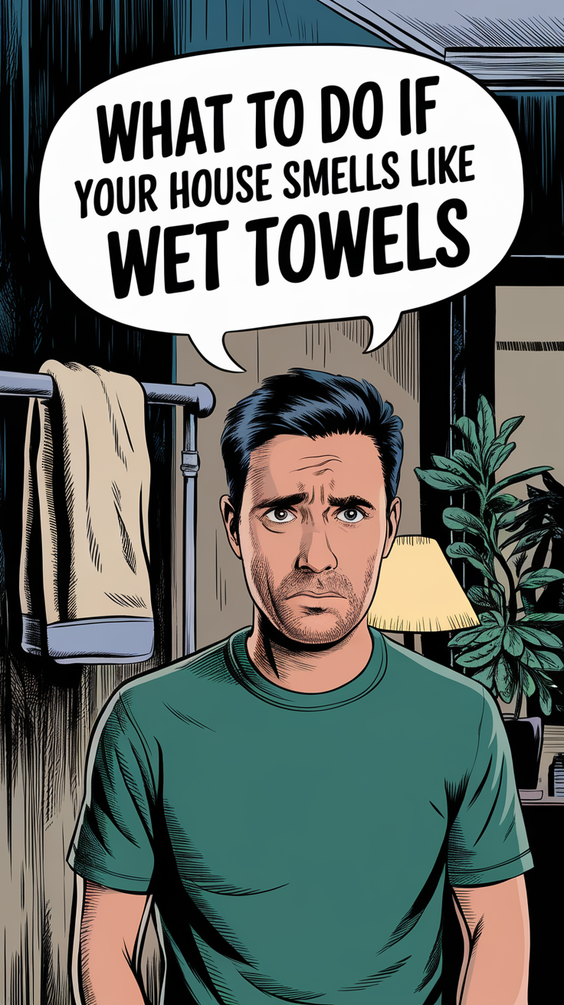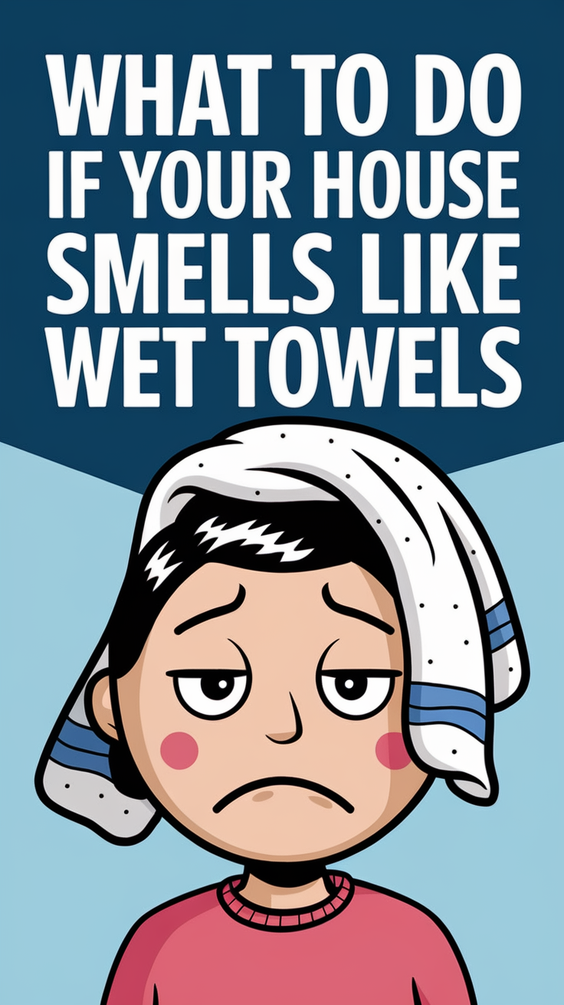What to Do If Your House Smells Like Wet Towels in 2025

Do you ever walk into your home and get hit by a musty, damp odor—almost like a pile of wet towels left too long in the laundry basket? If so, you’re definitely not alone. In 2025, more homeowners than ever are noticing this stubborn smell—and it can be as frustrating as it is unpleasant. But what actually causes your house to smell like wet towels, and what steps can you take right now to restore that fresh, clean scent you love?
This guide will walk you through everything you need to know to banish that wet towel smell for good. We’ll dig into the science behind household odors, show you how to identify and tackle the root causes, and share up-to-date, expert-backed solutions for cleaner air at home. If you want practical tips, easy checklists, and a fresher, healthier home, keep reading.
Who will benefit from this article?
If you’re a homeowner, renter, have pets or kids, or simply value a fresh-smelling home, this guide is for you. Let’s dive in—because everyone deserves a house that smells as welcoming as it feels.
Why Does My House Smell Like Wet Towels?
You wash your towels regularly, so why does your whole house suddenly have that damp, musty smell? The answer is usually more complicated than a single forgotten towel. The wet towel smell often points to deeper issues: excess moisture, poor ventilation, hidden leaks, or even unnoticed mold.
In 2025, as our homes become more airtight to improve energy efficiency, moisture can get trapped inside—leading to that infamous musty, “wet towel” aroma. High humidity, recent storms, or even small plumbing leaks can all contribute.
But don’t worry—once you know what to look for, you can take action.
Common Sources of Musty Odors in Homes
Let’s get specific. The most frequent culprits behind that damp odor include:
Bathrooms (especially after showers)
Laundry rooms and washing machines
Basement walls or floors
Damp towels or fabrics left out
Air conditioning and HVAC systems
Leaky windows, roofs, or pipes
Carpets and upholstery that hold moisture
Have you checked all these spots in your house recently? Sometimes the real cause is hiding in plain sight.
How Wet Towel Smell Affects Your Health and Home Value
A persistent musty odor is more than just embarrassing—it can actually impact your family’s health and your home’s long-term value. Musty, damp environments are perfect breeding grounds for mold, mildew, and bacteria. According to the CDC, mold exposure can cause allergy-like symptoms, worsen asthma, and even lead to chronic respiratory issues.
Are you or your family experiencing unexplained stuffiness, headaches, or worsening allergies? The smell may be a red flag.
But that’s not all. Homes with a lingering musty smell often sell for less—no buyer wants to inherit a hidden moisture problem. In the US housing market of 2025, a “fresh scent” isn’t just a bonus; it’s a must-have feature for buyers and renters alike.
When a Musty Odor Signals a Serious Problem
Not all odors are equal. If you notice the smell is strongest after rain, or you see visible spots on walls or ceilings, it’s time to take action—fast. Signs your issue could be more than just damp towels:
Persistent musty odor, especially in one area
Staining or discoloration on walls, floors, or ceilings
Peeling paint or bubbling wallpaper
Frequent condensation on windows
Recent leaks or water damage
Unexplained allergy symptoms
When in doubt, bring in a professional. Quick action can prevent serious mold infestations and protect your investment.
First Steps: How to Identify the Source of Wet Towel Smell
Ready to hunt down the source of the smell? Here’s a quick, expert-recommended checklist to get started:
Do a Room-by-Room Smell Test:
Start with bathrooms, laundry, kitchen, and basement. Get close to drains, vents, and fabrics.Check Under and Behind:
Look under sinks, behind furniture, and inside closets for hidden moisture.Inspect Textiles:
Smell towels, rugs, and soft furnishings. Anything left damp can go sour in a hurry.Look for Signs of Water Damage:
Are there stains, soft spots, or visible mold? Even small spots can create big odors.Assess Humidity Levels:
A humidity gauge can help. Aim for indoor humidity below 50%.
Pro tip: Write down your findings and address each spot individually for best results.
Table: Wet Towel Smell – DIY Source Checklist
| Location | What to Check | Action Steps |
|---|---|---|
| Bathroom | Towels, shower curtains, drains | Wash, dry, clean |
| Laundry Room | Washer drum, baskets, detergent drawer | Deep clean, dry out |
| Basement | Corners, carpets, sump pump | Inspect, air out, clean |
| HVAC System | Filters, vents, ductwork | Replace/clean filters |
| Kitchen | Under sink, dish towels, sponge | Clean, disinfect, dry |
| Bedrooms | Sheets, curtains, windowsills | Launder, check for leaks |
Immediate Solutions: Quick Ways to Get Rid of Wet Towel Smell
Once you’ve identified the source, it’s time for action. Here are some of the quickest and most effective ways to kick that musty odor to the curb:
Open Windows and Doors:
Fresh air is your best friend. Air out your home for 30–60 minutes, especially after cleaning.Launder All Towels, Linens, and Soft Furnishings:
Use hot water and a cup of vinegar or baking soda for extra odor-fighting power.Dry Everything Thoroughly:
Damp fabrics = lingering smell. Use a dryer or hang items in direct sunlight if possible.Deep Clean High-Risk Areas:
Pay special attention to bathrooms, laundry rooms, and anywhere moisture collects.Use an Air Purifier:
Modern HEPA air purifiers with activated carbon filters can help neutralize lingering odors.
Have you tried any of these tricks yet? Which worked best for you?
Home Remedies vs. Store-Bought Odor Eliminators
Wondering whether to stick with DIY solutions or invest in commercial products? Here’s a quick rundown:
Home Remedies:
White vinegar (neutralizes odor molecules)
Baking soda (absorbs moisture and smell)
Essential oils (for a fresh, natural scent)
Charcoal bags (great for closets and cars)
Store-Bought Options:
Odor-eliminating sprays (Febreze, OdoBan, etc.)
Gel odor absorbers (DampRid, Arm & Hammer)
Enzyme cleaners (excellent for organic stains and smells)
Dehumidifiers (for persistent humidity problems)
Expert tip: Combine both approaches for the fastest results!
Deep Cleaning Strategies for Persistent Odors
Still noticing that wet towel smell? It’s time for a deep clean. Here’s how the pros do it:
Shampoo Carpets and Upholstery:
Musty smells can get trapped deep in fibers. Rent a steam cleaner for best results.Wash or Replace Air Filters:
Change HVAC and air purifier filters regularly. Dirty filters recirculate bad smells.Scrub Bathroom and Kitchen Surfaces:
Mold and mildew often hide in grout and tile. Use a dedicated mold cleaner for stubborn spots.Check and Clean Vents:
Sometimes the source is inside your ductwork. Schedule a professional air duct cleaning if you suspect mold.Wipe Down Walls and Ceilings:
Use a vinegar solution (1 part vinegar to 3 parts water) for painted surfaces.
List: Top 5 Deep Cleaning Must-Do’s
Shampoo all carpets and rugs
Deep clean curtains, cushions, and throw blankets
Scrub and disinfect bathroom tiles and grout
Clean inside and behind appliances
Wipe down all hard surfaces and baseboards
When was the last time you did a “deep clean” in your home?
Preventing Wet Towel Odor: Long-Term Tips and Habits
The best way to deal with musty odors is to stop them before they start. Here are the top prevention tips from indoor air quality experts in 2025:
Launder and Dry Towels Promptly:
Never leave damp towels in a heap. Hang them up or put them in the dryer ASAP.Improve Ventilation:
Use exhaust fans in bathrooms and kitchens. Open windows regularly—even for just 10 minutes.Control Indoor Humidity:
Use a dehumidifier in damp spaces. Smart models can keep humidity below 50% automatically.Fix Leaks Quickly:
Inspect plumbing, roof, and windows regularly. Address any signs of water intrusion immediately.Store Linens Properly:
Make sure everything is dry before folding and putting it away.
Want to go the extra mile? Invest in a humidity monitor and track conditions in different rooms.
Table: Long-Term Odor Prevention Checklist
| Prevention Step | Why It Matters | Pro Tip |
|---|---|---|
| Dry towels promptly | Stops mold/mildew in fabric | Sun-dry towels weekly if possible |
| Use exhaust fans | Removes moist air | Run fan for 15 minutes post-shower |
| Monitor humidity | Keeps air dry and fresh | Keep below 50% for best results |
| Clean drains | Bacteria breed in standing water | Pour boiling water monthly |
| Inspect for leaks | Prevents big future issues | Check after heavy rain |
Innovations and Trends: Odor Control Solutions in 2025
Home air quality tech is evolving fast. If you’re tired of fighting odors the old-fashioned way, 2025 brings new tools:
Smart Dehumidifiers:
These devices connect to your phone and automatically adjust moisture levels based on real-time readings.HEPA and Carbon Air Purifiers:
Newer models are quieter, energy-efficient, and can be voice-controlled.Smart Leak Detectors:
Sensors placed under sinks or appliances send instant alerts if they detect water—preventing musty smells before they start.Natural Air Fresheners:
Popular brands now offer eco-friendly, non-toxic sprays and plug-ins.
Have you tried any smart home solutions to fight household odors? Share your favorites below!
Recent News and Research on Home Odor Issues
Did you know that indoor air quality is now ranked among the top 5 health concerns by the EPA? New research in 2025 shows that over 70% of US homes have at least one issue related to excess moisture or poor ventilation.
Major media outlets like HGTV and Consumer Reports have highlighted how new construction methods—while more energy-efficient—can increase humidity and trap odors inside.
The good news? More affordable, high-tech solutions are coming to market each year, making it easier than ever to keep your home smelling fresh.
Frequently Asked Questions (FAQ) on Wet Towel Smells
Q: Why does the smell keep coming back after I clean?
A: It’s likely a sign of ongoing moisture or hidden leaks. Double-check for sources you may have missed, like behind appliances or inside ducts.
Q: Will an air purifier get rid of the smell?
A: Air purifiers can help, but they work best when the root cause (moisture or mildew) is addressed first.
Q: Is the wet towel smell dangerous?
A: On its own, no. But if it’s caused by mold, long-term exposure can affect your health.
Q: Should I use bleach to clean moldy areas?
A: Bleach is effective on hard, non-porous surfaces. For fabrics or porous materials, use specialty cleaners or replace the item.
Q: What humidity level is best for preventing odors?
A: Most experts recommend keeping indoor humidity between 35% and 50%.
Poll: How Often Do You Notice Unpleasant Odors at Home?
How often do you notice musty or unpleasant odors at home?
Almost every day
A few times a month
Only after rain or storms
Rarely/never
Share your answer in the comments!
When Should You Call a Professional?
If you’ve tried everything and the smell just won’t budge, it may be time to bring in an expert. Call a professional if you notice:
Large areas of visible mold or mildew
Ongoing leaks that can’t be fixed with DIY methods
Signs of structural water damage
Health symptoms that worsen at home
Don’t wait—mold remediation and water damage repair is always cheaper (and safer) the sooner you act.
Reader Stories: How I Solved the Wet Towel Smell at Home
“We had a musty smell in our guest room for months. Turned out, the problem was a leaking pipe under the floor. Fixing it and running a dehumidifier solved it for good.” — Julia, New York
“I used to leave towels in the washer overnight. Switching to immediate drying and adding a splash of vinegar in the rinse cycle made a huge difference.” — Michael, Texas
Do you have your own story or tip? Add it in the comments!
Conclusion: Key Takeaways and Expert Tips
Let’s recap what we’ve covered:
Wet towel smells are almost always caused by hidden moisture, leaks, or poor ventilation.
Quick action—laundering, airing out, and deep cleaning—makes a big difference.
Preventive habits and modern gadgets are your best defense against musty odors in 2025.
Pay attention to persistent smells; they may signal bigger problems.
What about you?
Have you ever struggled with a wet towel smell in your home? What finally worked for you? Share your advice, questions, or stories in the comments—and help others keep their homes fresh this year!
Don’t forget to share this guide with friends and family who could use a fresher-smelling home in 2025!


